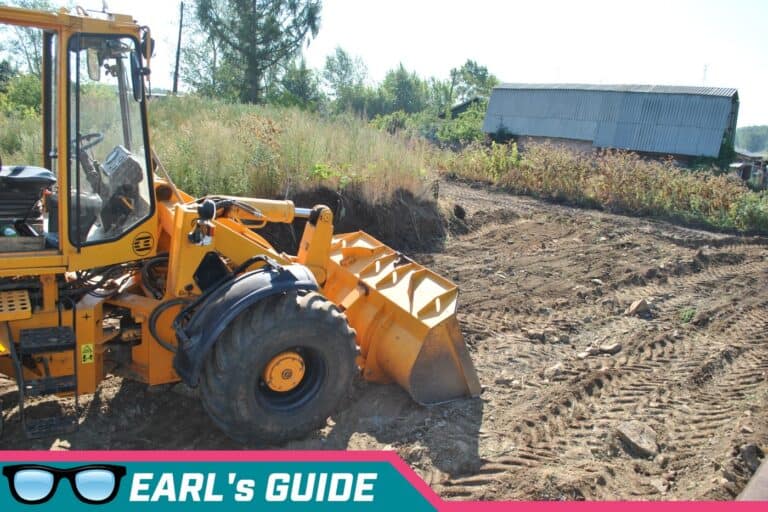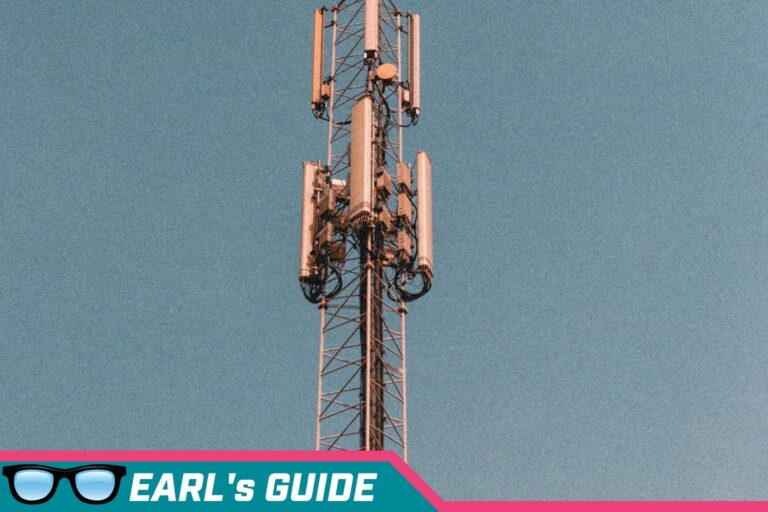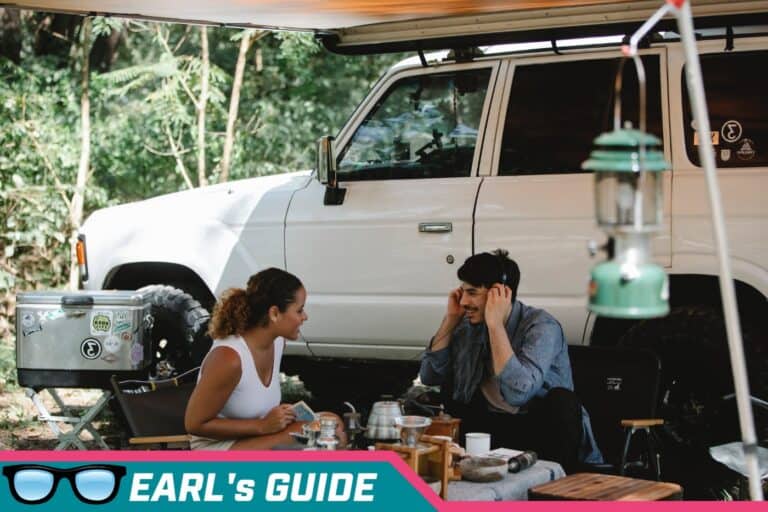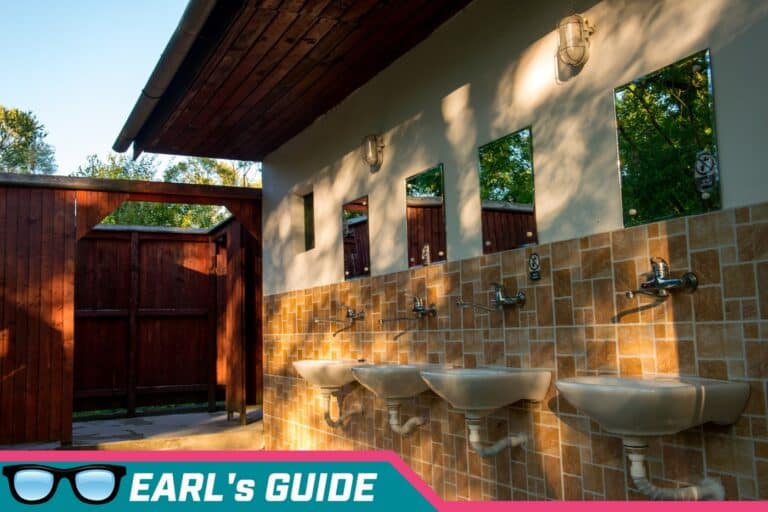A Comprehensive Guide to Thriving in Work Camping
Welcome to a journey into the heart of work camping, where adventure meets the open road and opportunities abound for those willing to embrace a nomadic lifestyle. In this comprehensive posting, we delve deep into the world of work camping, guided by insights from my recent interview on the Workamper Show presented by WorkamperNews.com, and further enriched by an in-depth article offering actionable tips for aspiring work campers.
Drawing from my experiences as the director of operations at Beyonder, I share firsthand knowledge about what it takes to stand out in the competitive field of work camping. From detailing the significance of specificity in applications to the importance of showcasing your willingness to traverse the country, this posting is designed to equip you with the tools you need to navigate the work camping landscape successfully.
Expect to uncover the nuances of crafting an application that captures the attention of employers, the art of highlighting your unique skills and experiences, and the critical importance of including solid references. Moreover, we address common oversights and provide a roadmap to avoiding them, ensuring your journey into work camping is both rewarding and fulfilling.
Whether you’re a seasoned work camper looking to refine your approach or new to the scene and eager to embark on this exciting path, this posting offers valuable insights and practical advice to help you achieve your work camping aspirations. Join us as we explore the essentials of making your application shine, building strong professional relationships, and seizing the opportunities that work camping has to offer.
Helping Workampers get hired
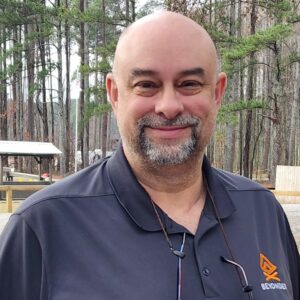
As the Director of Operations at Beyonder, a dynamic company that owns or manages a growing network of seven campgrounds across Alabama, Indiana, Iowa, Louisiana, Missouri, and Oklahoma, I’ve had the unique opportunity to not only witness but also partake in the evolving landscape of workamping. Our mission at Beyonder is not just to offer jobs but to create fulfilling opportunities for those who, like me, have ventured into workamping with a passion for exploration and a desire to contribute meaningfully to the communities they temporarily call home.
Drawing from my own journey and the lessons learned along the way, I’ve realized that specificity is the keystone of a successful application. In the fast-paced world of campground management, where resources are often stretched thin, the ability to pinpoint exactly what one can bring to the table is invaluable. It’s not just about stating that you possess computer skills; it’s about detailing your proficiency with specific reservation software programs like Campspot, your adeptness with Microsoft Word and Excel, and your capability to engage audiences through social media platforms like Facebook and YouTube.
During a recent feature on the Workamper Show presented by WorkamperNews.com, I shared insights aimed at helping workampers enhance their visibility and appeal to potential employers. One of the cardinal pieces of advice I offered was the importance of listing detailed experiences and skills on resumes. Whether it’s the maintenance work you’ve undertaken, specifying whether it involved building or fixing, or the reservation systems you’re familiar with, these specifics can significantly bolster your application.
Moreover, I emphasized the value of volunteer experiences. In the realm of campground operations, every skill and every experience counts. Something as seemingly unrelated as organizing activities for a church group can showcase your leadership and planning abilities, traits that are highly sought after in this industry.
At Beyonder, we’re constantly on the lookout for enthusiastic workampers to fill roles in customer service, housekeeping, maintenance, and even management. The opportunities we offer are not just jobs; they’re a chance to become part of a community, to make a difference, and to enjoy the beauty of nature while doing so. Our commitment to ensuring a rewarding experience for our workampers is reflected in our competitive compensation, which includes wages higher than minimum wage and benefits like a free RV site for couples or a 50% discount for solo workampers.
However, attracting the right talent is a two-way street. As applicants strive to make their resumes stand out, we too are adapting by employing artificial intelligence to scan applications more efficiently. This technology helps us identify candidates who truly match our needs, ensuring that both parties can benefit from this unique employment arrangement.
It’s also worth noting the importance of personalizing your application. Including recent photos with your resume not only adds a personal touch but also aids in creating a connection with potential employers. It’s these small details that can set you apart in a sea of applications.
For those interested in exploring the opportunities at Beyonder, I encourage you to visit our careers page at www.beyondercamp.com/careers. Here, you’ll find more information on the roles available and the vibrant communities you could be a part of. Remember, a detailed resume that highlights your unique skills and experiences is your ticket to a fulfilling workamping experience.
Mastering the Art of Standing Out: A Guide for Aspiring Work Campers
In the burgeoning field of work camping, where the spirit of adventure meets the need for transient employment, standing out among a sea of applicants can be as challenging as it is crucial. With more individuals seeking the unique blend of work and travel that work camping offers, crafting an application that not only captures attention but also showcases your unique value is paramount. Here’s a comprehensive guide for aspiring work campers on how to make their applications shine, what to include, what to avoid, and how to highlight specific skills and experiences.
Crafting Your Application: The Essentials
1. Detail Your Specific Skills and Experiences: The cornerstone of a standout application lies in the specificity of your skills and experiences. General statements like “experienced in maintenance” are far too vague. Instead, detail the nature of the maintenance work you’ve done, the tools and technologies you’re proficient in, and the projects you’ve successfully completed. For example, if you’ve worked with specific reservation systems or have expertise in eco-friendly landscaping practices, mention these directly. This level of detail not only showcases your skills but also helps potential employers envision how you can fit into and enrich their operations.
2. Highlight Flexibility and Willingness to Relocate: Expressing a genuine willingness to travel to different parts of the country can significantly enhance your application. Campgrounds and RV parks often seek individuals who are adventurous and adaptable. Mentioning your openness to explore various locations demonstrates your enthusiasm for work camping and your flexibility, traits highly valued in this line of work.
3. Build and Include Solid References: A surprising oversight in many work camper applications is the absence of references, particularly former managers or supervisors. Including references is not just a formality; it’s a testament to your reliability, work ethic, and the positive impact you’ve had in previous positions. If you’re new to work camping, references from any relevant work experience can be incredibly beneficial. They serve as a bridge between your past roles and your potential as a work camper. Omitting this crucial element raises concerns about your work history and professionalism.
What to Include: A Checklist
- Detailed Skills and Experience: Be as specific as possible about what you can do and what you have done.
- Flexibility and Willingness to Travel: Make it clear you’re open to moving around and taking assignments in different states or regions.
- Strong References: Include contact information for former managers or supervisors who can vouch for your work and character.
- Volunteer Work: Don’t underestimate the power of volunteer experiences. They can showcase your initiative, skills, and adaptability.
- Certifications and Training: If you have any relevant certifications or have undergone training (first aid, CPR, specific software programs), include these in your application.
What Not to Say
- Avoid Negativity: Speaking ill of previous employers or experiences might come off as unprofessional. Focus on what you’ve learned and how you’ve grown from past roles.
- Don’t Be Too General: Avoid vague statements that don’t offer insight into your capabilities and experiences.
- Skip the Irrelevant Details: While it’s important to paint a full picture of your skills and experiences, avoid cluttering your application with information that is not directly relevant to the work camping position.
Stressing Specific Skills
In a field as diverse as work camping, the ability to stress specific skills cannot be overstated. Tailor your application to highlight the skills most relevant to the job you’re applying for. If the position is in customer service, focus on your communication skills, conflict resolution abilities, and experience with reservation systems. For maintenance roles, detail your technical skills, problem-solving abilities, and specific projects you’ve worked on. This tailored approach not only makes your application more relevant but also more compelling.
Building Good References
Building and maintaining good references is a continuous process that starts long before you begin your work camping journey. It involves:
- Performing Consistently Well: Excel in your roles to ensure your managers and supervisors can provide positive feedback about your work.
- Maintaining Professional Relationships: Keep in touch with former employers and colleagues. A network of professional contacts can be invaluable.
- Asking for References Proactively: Don’t wait until the last minute to ask for references. Approach your referees well in advance, ensuring they’re willing and prepared to provide a positive account of your work.
Workamping is a great opportunity
Standing out in the competitive field of work camping requires a thoughtful, detailed, and tailored approach to application writing. By emphasizing specific skills, demonstrating flexibility, including solid references, and avoiding common pitfalls, aspiring work campers can significantly increase their chances of securing their desired positions. Remember, a work camping application is more than a mere formality; it’s a reflection of your professional journey, your adaptability, and your readiness to embark on new adventures. Craft it with care, precision, and a keen eye for detail, and you’ll open the door to exciting opportunities across the country.
I believe that workamping offers an unparalleled opportunity to blend work and wanderlust. At Beyonder, we’re eager to welcome those who share our passion for the great outdoors and are ready to contribute to our collective success. With specificity, personalization, and a keen eye for detail, your next great adventure could be just an application away.

Robert Earl
Robert EarlRobert has 20+ years of experience as a Real Estate Agent, Coach & Digital Marketer. Robert Earl is passionate about teaching and empowering others to pursue their dreams and create sustainable income. Whether through a career in real estate, affiliate marketing, niche blogging, or transforming campgrounds into thriving communities, his proven strategies and techniques have helped numerous individuals and businesses succeed. Based on his years of experience and knowledge in the online marketing industry, along with his hands-on management in the Real Estate & RV Park sector, he has crafted a unique and effective approach to personal and professional growth. In addition to his business pursuits, Robert is also a CrossFit Online Level 1 Trainer (CF-OL1) and enjoys fitness activities, including Rucking workouts while traveling the country. His multifaceted career showcases his dedication to growth, innovation, and the pursuit of excellence in various domains.

